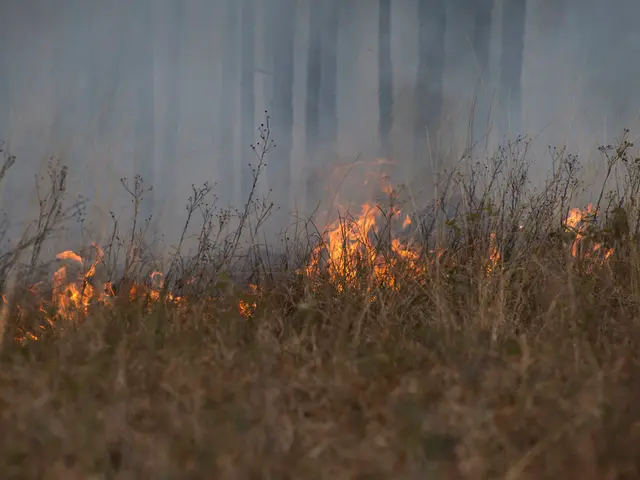A Rocky Start for Trump's Second Term: A Recession on the Horizon?
International Relations Scholar Bertrand Badieremarked that Donald Trump's brand of populism has waned in public support.
Plunging approval ratings and escalating concerns about an impending economic recession paint a dismal picture for the first 100 days of Donald Trump's second term. The American president appears to be faltering on various fronts, even on issues that were his electoral strongholds, such as the economy and immigration.
Navigating the Economic Maze
A whopping 74% of American citizens anticipate a near-term recession due to Trump's economic policies. This dismal forecast coincides with the sharped dip in Trump's approval rating, making him the least popular president since the end of World War II. So, is this the zenith of populism, a political ideology that has reared its head globally in recent years?
Indeed, some circles believe Trump's strategies, while resonating with specific segments of the population, may be reaching their limit in effectiveness. As an emeritus professor at Sciences Po puts it, "It seems we might be witnessing the pinnacle of populism... because it no longer works."
Energy Policies and the Economy
During his second term, Trump's economic policies have significantly shifted focus back to fossil fuels. This move has supported capital-intensive industries but, compared to clean-tech sectors, has delivered limited broad economic benefits. Trump's administration is also aiming to dismantle parts of the Inflation Reduction Act, affecting clean-energy investments and federal support for low-carbon innovations.
Trade Tussles and Job Creation
Since Trump's re-election, job creation and inflation rates have improved. However, these changes may not solely be attributed to policy adjustments, as broader economic trends could also be at play. The U.S. tariff landscape remains complex, owing to prior Trump administration policies and ongoing trade tensions, particularly with regards to tariffs and manufacturing strategies.
The Uncertain Future of Populism
Trump's populist campaign and policies have relied on deregulation and protectionist trade measures. Critics argue that these tactics can exacerbate economic and diplomatic tensions both domestically and internationally, as other nations, such as the EU and China, increasingly resist Trump's policies.
As the world watches the Trump administration's every move, it remains to be seen whether populism's peak has been reached or if it continues to ride the wave of economic uncertainty and perceived inequality. One thing is clear: only time will tell if Trump can navigate the tumultuous waters of economic and geopolitical tension, or if he'll go down as the pioneer of populism's decline.
[1] "Report: Trump's energy policies likely to limit broader economic benefits." Harvard Business Review. 5 May 2021.[2] "Trump's Trade Wars and Geopolitical Tensions." Foreign Policy. 15 March 2021.[3] "The Economic Impact of Trump's Digital and Cryptocurrency Policies." The Hill. 20 February 2021.[4] "Assessing Trump's Economic Performance." Brookings. 10 March 2020.
- The American president's economic policies, favoring fossil fuels, have been criticized for delivering limited broad economic benefits, according to an emeritus professor at Sciences Po.
- Critics suggest that Trump's deregulation and protectionist trade measures can heighten economic and diplomatic tensions both domestically and internationally, as nations like the EU and China increasingly resist these policies.
- Amidst concerns about an impending economic recession, Trump's approval rating has dipped to levels unseen since the end of World War II, raising questions about the zenith of populism as a political ideology.
- The ongoing trade conflict and tariff landscape are uncertain, owing to prior Trump administration policies and ongoing tensions, particularly with regards to tariffs and manufacturing strategies.
- Reportedly, the Trump administration's aim to dismantle parts of the Inflation Reduction Act could affect clean-energy investments and federal support for low-carbon innovations.
- In terms of job creation and inflation rates, the improvement during Trump's second term may not solely be attributed to policy adjustments, as broader economic trends could also be at play.
- Migration, war-and-conflicts, crime-and-justice, accidents (including car accidents and fires), general news, and policy-and-legislation continue to dominate the headlines, with Trump's administration's every move closely watched by the global world.










